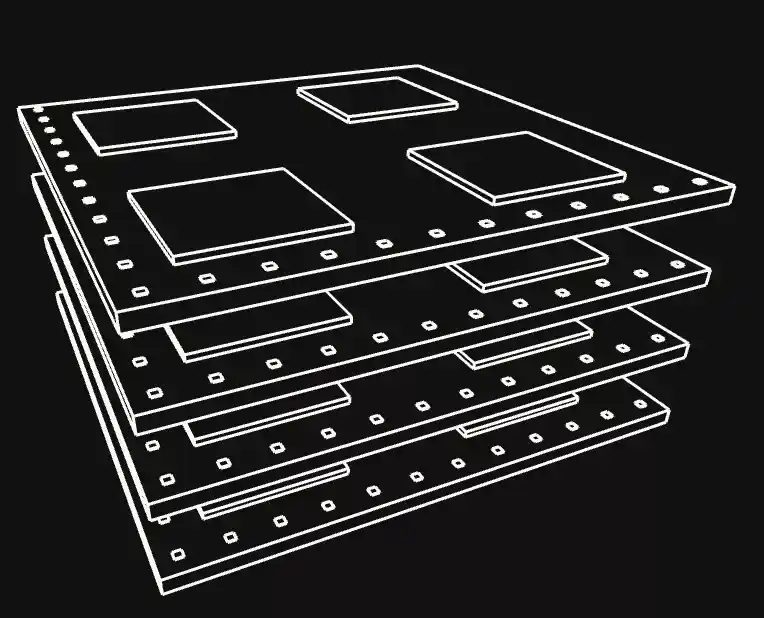Table of Contents
Introduction
In the dynamic landscape of artificial intelligence (AI) and mobile technology, Germany-based startup Semron has emerged as memcapacitors. Co-founded by Kai-Uwe Demasius and Aron Kirschen, both engineering graduates from the Dresden University of Technology, Semron is spearheading the development of cutting-edge “3D-scaled” chips.
These chips, driven by the innovative use of memcapacitors, aim to revolutionize local AI model processing on smartphones, earbuds, VR headsets, and other mobile devices.
The Memcapacitors Advantage
Traditional processors rely on electrical currents for computations, but Semron’s memcapacitors leverage electrical fields, offering a groundbreaking approach to energy-efficient computing. Aron Kirschen emphasizes that this shift enables Semron’s chips to achieve higher energy efficiency while maintaining cost-effectiveness in fabrication.
Memcapacitors, a unique component in Semron’s chips, are essentially capacitors with memory capabilities. Unlike conventional transistors, which act as simple “on/off” switches, memcapacitors can store energy and utilize a principle known as charge shielding. This allows the control of an electric field between electrodes through a shielding layer, modulated by the chip’s memory storing the different “weights” of an AI model.
Reducing Energy Usage and Heat Generation
The electric field approach employed by Semron minimizes the movement of electrons at the chip level, resulting in reduced energy consumption and heat generation. Sermon envisions harnessing the heat-reducing properties of the electric field to stack potentially hundreds of layers of memcapacitors on a single chip, thereby significantly increasing compute capacity.

Research Validation
In a groundbreaking study published in 2021 in the journal Nature Electronics, Semron, in collaboration with the Max Planck Institute of Microstructure Physics, demonstrated the remarkable energy efficiency of their memcapacitor-based chips. The study showcased energy efficiencies of over 3,500 TOPS/W, marking a substantial improvement—35 to 300 times higher than existing techniques—for training AI models.
Competitive Landscape and Funding
While Semron is in the early stages, with a “pre-product” status and minimal revenue, the startup has attracted significant attention and funding. With an 11-person workforce set to expand by around 25 people by the end of the year, Semron has secured 10 million euros (~$10.81 million) in funding from investors such as Join Capital, SquareOne, OTB Ventures, and Onsight Ventures.

Challenges and Competition
In the challenging landscape of the chip industry, Semron faces formidable competitors such as Kneron, EnCharge, and Tenstorrent. These established players have been making significant strides in custom chip ventures, with EnCharge adopting a similar capacitor-centric approach while employing a distinct substrate architecture.
Acknowledging the hurdles ahead, SquareOne partner Georg Stockinger underscores the profound significance of Semron’s contribution. He emphasizes the pivotal role of computing resources in the 21st century, likening them to the “oil” of this era. In this context, Stockinger lauds Semron’s revolutionary memcapacitor-based chip, which diverges from the conventional transistor-based computing paradigm.
This departure promises a remarkable potential: a 20x reduction in both costs and energy consumption for a given computing task. Semron’s innovative approach not only addresses the competitive dynamics of the chip industry but also positions the company as a transformative force in shaping the future of computing by providing efficient and cost-effective solutions for the increasing demands of the digital age.
Conclusion
Semron’s journey into the realm of memcapacitors represents a transformative leap in the quest for energy-efficient AI computing on mobile devices. While challenges and competition loom, the startup’s innovative approach and early validation through research indicate a promising future.
As Semron continues to evolve and expand its workforce, the world eagerly awaits the realization of memcapacitors as a key element in solving the impending computing resource bottleneck and shaping the future of AI on mobile devices.





